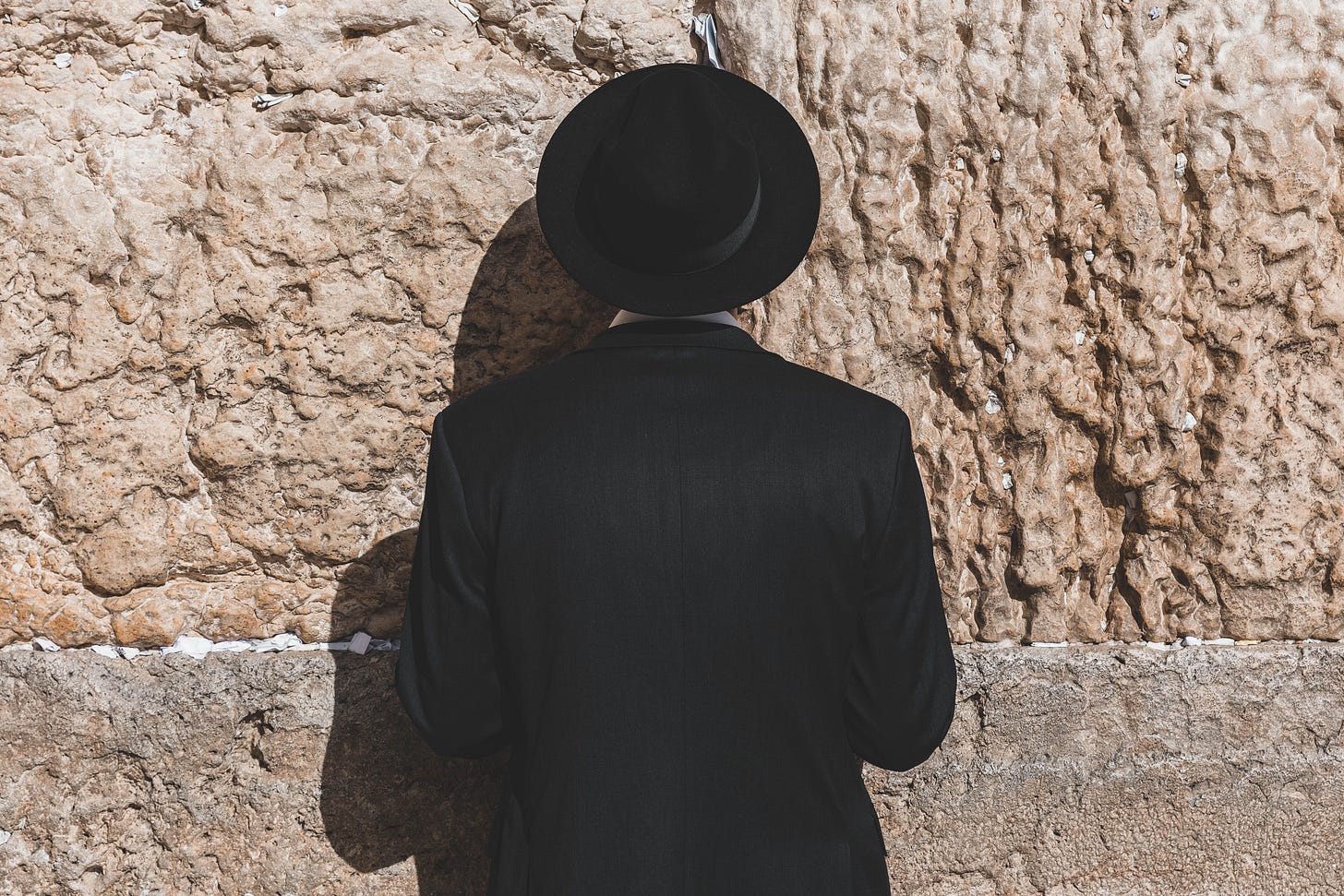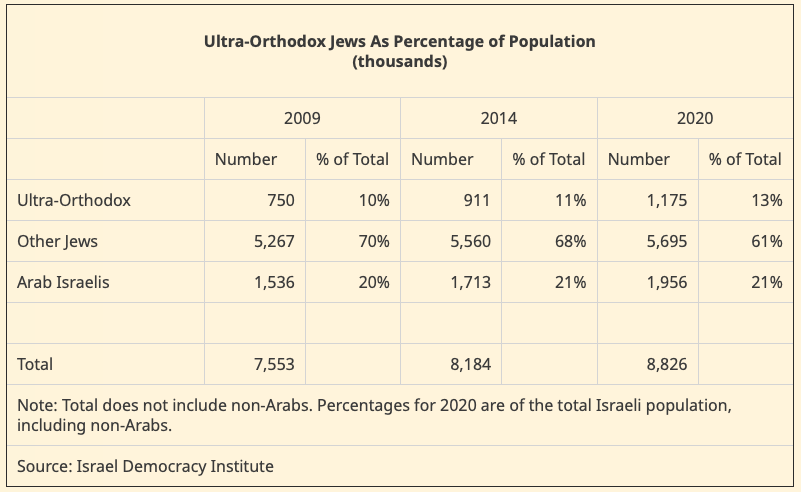Israel's rabbit and hat problem
"The abyss is at our fingertips." If you want to look at a possible future for the U.S., look at Israel right now
If you want a glimpse of a country with its unpopular leader the defendant in a seemingly endless corruption trial, remaking his nation’s judiciary under the influence of extremists who wish to shape the government and the state to serve their own ends, don’t look to the U.S. in 2024 and the nightmare second term of Donald J. Trump. Look to Israel and Prime Minister Benjamin Netanyahu right now.
The Old Testament prophets would not recognize modern Israel as anything they’d consider particularly kosher. But they’d probably recognize the habit of Israel’s tribes to split over the pressures of Jewish law on a people bent on their own self-will. Indeed, some of those prophets would find themselves among the crowds protesting the government’s proposed overhaul of its highest court. The problem Israel faces isn’t one of its survival as a physical state—Israelis are well-equipped, militarily, technologically, economically, educationally, and by cultural force to defend their homeland. The problem is that Israel, as a “Jewish state” faces unprecedented challenges that are not about to go away.
Israel is the Jewish State, by its own law. Israel has no constitution, only a set of “basic law” passed by its unicameral legislature, the Knesset. One of these laws describes the relationship of Israel, the State, with Israel, the Land, and the Jewish people of the world. Some of the articles in this law prescribe Jewish holidays as the State holidays, Jewish culture with special status as State culture, and the Jewish calendar as the State calendar. But the State, in its self-governance, is secular, as are a large number of Israelis, especially among Jews.
Based on 2021-22 Jewish calendar figures, 45 percent of Jews self-identify as secular. Of the other 55 percent, they are roughly split among traditional, traditional-religious, religious, and ultra-Orthodox (11 percent). But the ultra-Orthodox (Haredi) demographic is growing fast, since they tend to have large families.
There is disagreement as to the sector’s growth, with some estimates predicting a Haredi majority (among Jews) by 2059, and others as low as 35 percent. Much of that could depend on how Israel, as a State, decides to go regarding its own governance. Israel is not a theocracy, though it does consider its purpose to be a land where every Jew in the world can find protection and a homeland. As a pure theocracy, it’s highly doubtful Israel could survive. Forcing Haredi extreme adherence to Jewish Law would result in a very repressive regime indeed.
Yet, a large chunk of Netanyahu’s coalition is pushing for changes to the nation’s judiciary that would allow the Knesset to override any effort of Israel’s High Court to strike down laws they passed. The Haredi-led United Torah Judaism party wants these reforms so it may overthrow the court’s ruling that ultra-Orthodox men must serve in the IDF alongside other Israelis. These issues run to the core of Israeli division, and words like “civil war” have been batted around by President Isaac Herzog, who has offered his own plan called the “People’s Directive” to end the division.
“Those who think that a real civil war, with lives lost, is a line we will not cross, have no idea. Precisely now, 75 years into Israel’s existence, the abyss is at our fingertips,” President Isaac Herzog said in an introduction speech to what he called the “People’s Directive,” a comprehensive document intended to end the current conflict in Israel over the government’s proposed reforms of Israel’s judicial system.
An actual civil war would, of course, be catastrophic to Israel, and one in which its enemies would gleefully root for both sides to lose, as Palestinians in the West Bank and Gaza would certainly use the opportunity to sow further chaos and damage to what they’ve been taught are their occupiers.
Therefore, Israel, in its pragmatism, is expected to pull a compromise rabbit out of its hat, and talk—or yell—out a solution. But maybe that rabbit is too hard a trick this time. Netanyahu’s political life, and his own legal future, may depend on the judicial overhaul. Activists on both sides have resorted to violence, while some military officers have openly questioned their loyalty to a government run by Netanyahu.
Israel tried, and could not sustain, a government not run by Netanyahu. During the pandemic, the nation held three elections in a year to try to form a government. Then a coalition of eight parties led by the Lapid party, featuring prominent Arab Israeli involvement, won power in 2021 and put Naftali Bennett in the PM role. It didn’t last, when that coalition collapsed in June 2022, triggering an election, which Netanyahu’s Likud, teamed with its ultra-Orthodox partners, won. This all happened while Netanyahu was on trial.
The Jewish state faces an existential crisis, one that will determine whether the secular state—with its judiciary and parliamentary process and the primacy of civil law—or the religious state—led by ultra-Orthodox Jews and hard core Zionists—will rule the people. The divide might lead to an impossible conundrum: should Israel even be the Jewish state, based on the customs, law, and preservation of the world’s Jews? Or should it continue to exist to serve the residents of the Land of Israel, which include Arabs, Palestinians, Jews, and Christians? Is it possible for both purposes to continue to co-exist?
I think these issues are important in the light of what’s going on in America. With Rep. Marjorie Taylor Greene calling for a “national divorce” of “red” and “blue” states, or “conservative” and “liberal” voters, and others bandying the idea of civil war, we can see what happens when a government is disrupted for the benefit of one man.
Donald Trump used his Truth Social platform to predict his own arrest this week. He encouraged his followers to protest. He put himself at the top of the news for a cycle, to coincide with the opening of his 2024 presidential campaign. He overshadowed his likely strongest competitor, Gov. Ron DeSantis, who has so far remained silent on Trump’s potential indictment. Trump will let the media do his bidding, in taking apart DeSantis. Trump will try to finesse his own legal troubles and use them to destroy his competition, somehow, even as the unfavored candidate, winning primaries by splitting the vote.
If elected in 2024, Trump will engage Schedule F in an executive order he penned in 2020 (and could restore), which would allow him to summarily replace thousands of midlevel bureaucrats all over the government (the “Deep State”). He would continue the politicalization of the Supreme Court, the reputation of which as a nonpartisan body has been greatly harmed of late (by the same media that hates Trump). Trump would seek to remake the U.S. government in a way that helps him, but at the same time he would subvert the rule of law and the Constitution under his own rule by fiat and political will.
All the anti-Trump protests from 2016 through 2020, many of which were pure political theater, until the actions of Trump after his 2020 loss, would then become real, existential issues. In the U.S., it’s far harder to prosecute a sitting president (as we can see by the whole Stormy Daniels thing only now coming back) than it is in Israel. Israel’s Netanyahu is seeking the same kind of protection a sitting U.S. president has, at the cost of subverting his entire judiciary and submitting to the whims of 11 percent of his nation’s Jewish citizens (a lower percentage if you include Arabs—or those who are Muslim, or Christian).
You can see where Israel is today, and where America could be in just two years. We in America should heed Herzog’s warning: “the abyss is at our fingertips.” I have much faith that Israel will pull out some kind of rational answer to its problem. The pressures of being surrounded by sworn enemies, and facing down a resurgent Iran aligned with Russia tend to bring things into stark perspective. But Israel is flirting with its own future.
America could be exactly in the same place, but without the advantages of the small, tight-knit culture of Israel. We need to stop and decide if its more important that we find the best candidate possible or to prevent Trump from winning, even if that means backing Ron DeSantis. We need to pull a rabbit out of our hats just like Israel. We should be watching the Israelis very closely to see how they do it.





Politicization of the courts is not a good thing. On the other hand the courts themselves have been guilty of allowing it by deferring to the executive branch bureaucrats' "expertise" and allowing them to make laws out of ill-defined bills. Prime examples are declaring that farm ponds and small creeks are waters of the USA and using interstate commerce to justify anything the cabinet of the administration in power wants. The balance of power has become skewed. The federal courts will not stay in their lane which is to strictly follow the Constitution. Congress is ineffective in correcting excesses. Constitutional amendments are next to impossible. The feds continue to undermine the States which is where most laws affecting day to day living should reside.